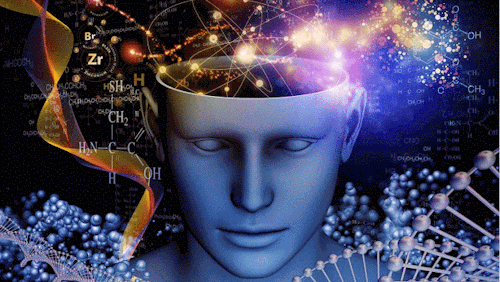Science and faith
Nobel Prize in Physics He says he believes in God for science.
Clearly, therefore, Davies points out, both religion and science are founded on faith, particularly, on the belief that there is something "outside" the universe-be it God or a set of physical laws of inexplicable origin-that order
Even so, the most rational scientists, even those who refuse to believe in God, admit that there is a great void in our understanding of the universe. They will admit that neither God nor the Bible can be tested or disapproved by science, like many of their favorite theories, ultimately they can not be proven or disapproved. Science exists to be a true neutral discipline, seeking only the truth, not the test of an agenda. And God has always tried to come to Him through faith, not through logic.
Much of science supports the existence and work of God. Psalm 19: 1 says, "The heavens declare the glory of God, and the firmament announces the work of their hands." As modern science discovers more about the universe, we find more evidence of Creation. The amazing complexity and reproduction of DNA, the intricate and interconnected laws of physics, and the absolute harmony of conditions and chemistry here on earth all serve to support the message of the Bible. A Christian must embrace the science that seeks the truth, but reject the "priests of science" who put human knowledge above God's.
This month, the American physicist and winner of the Nobel Prize in Physics in 1997 for the development of methods to cool and capture atoms by laser, William Daniel Phillips celebrated his 64th birthday.
This Protestant Christian, a member of a Methodist Church, has long been part of the National Institute of Standards and Technology.He is professor at the University of Maryland and also one of the founders of the International Society for Science & Religion (International Society for Science and Religion).
UNION BETWEEN SCIENCE AND FAITH
Years ago, he wrote his testimony explaining his thinking about the existence of God and about the union between science and faith, which can be consulted. "Many believe that Science, offering explanations, is opposed to the understanding that the universe is a creation that arises from the love of God," begins the scientist, "believe that Science and Religion are irreconcilable enemies, but It is not like this".
William Phillips answers this question through his experience: "I am a physicist. I do traditional research, I publish in magazines, I present my research in professional meetings, I teach students and post-doctoral researchers, I try to learn how nature works. In other words, I am an ordinary scientist. "
ACTIVE AND COMMITTED BELIEVER
But, he continues, "I am also a person of religious convictions. I attend my church (evangelical), I sing gospel in the choir, every Sunday I go to Sunday school, I talk to God regularly, I try to "do justice, love mercy, and walk humbly with my God."
In other words, I am an ordinary person of faith (Christian). " He understands that for many people, this may seem like a contradiction:
"A serious scientist who believes seriously in God! But, for many more people, I am someone like them. Although most of the attention in the media is focused on the 'raucous' atheists who claim that religion is a foolish superstition, or the fundamentalist creationists who deny the evidence of cosmic and biological evolution, most people I know no difficulty in accepting scientific knowledge and maintaining religious faith, "he says.
HOW CAN I BELIEVE IN GOD?
He himself poses two questions that he has to answer: How can I believe in God? and Why do I believe in God? How can I believe in God? The Nobel Prize continues: "As an experimental physicist, I need proofs, reproducible experiments and a rigorous logic to support any scientific hypothesis.
How can such a person be based on faith? "He challenges. "A scientist can believe in God because this conviction is not a scientific question.
A scientific statement must be 'falsifiable', that is, there must be some results that, at least in principle, could show that the claim is false [....]. On the contrary, religious affirmations do not have to be necessarily 'falsifiable', "argues William Phillips. "It is not necessary that every statement is a scientific statement; nor for that reason statements that are simply not scientific become useless or irrational statements.
Science is not the only useful way to see life, "reasons the Nobel Prize. "As a physicist, I observe nature from a particular point of view. I see an orderly, beautiful universe, in which almost all physical phenomena can be understood with a few simple mathematical equations.
I see a universe that, had it been built in a slightly different way, would never have given birth to stars and planets. And there is no scientific reason why the universe could not have been different. Many good scientists have concluded with these observations that an intelligent God has decided to create the universe with this beautiful, simple and life-giving property.
Many other great scientists, however, are atheists. Both conclusions are positions of faith, "he replies. William Phillips comments: "I believe in God because I feel the presence of God in my life, because I can see the evidence of God's goodness in the world, because I believe in love and because I believe that God is love."
BELIEVE IS NOT TO STOP DOUBT
Does being a believer or a Christian make you a better person or a better physicist than others? "I know a lot of atheists who are better people and better scientists than me. Am I free of doubts about the existence of God? Hardly too.
The questions about the evil in the world, the suffering of innocent children, the variety of religious thought and other imponderables often leave the question of whether I am right in the air, and they always make me see my ignorance.
Despite all this, I believe more (in God) thanks to Science than in spite of it ", concludes the Nobel Prize winner. "As it is written in the Epistle to the Hebrews, 'faith is the guarantee of the goods that are expected, the full certainty of the realities that are not seen'" is his final message.





Love the picture for science.
Faith is such a beautiful thing
Excellent post
Is very good.....
You are cherry picking on which scientists believe in some deity. The majority of us don't, and it is not because we refuse, but only because there is no evidence to it. On the contrary, scientific theories are not believed to be true: they are confronted with experience; and if they fail, they are discarded or improved.
i'm an educator and finding a post as interesting as this one... is hard! uvoted
Great @darlenys